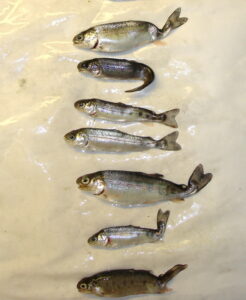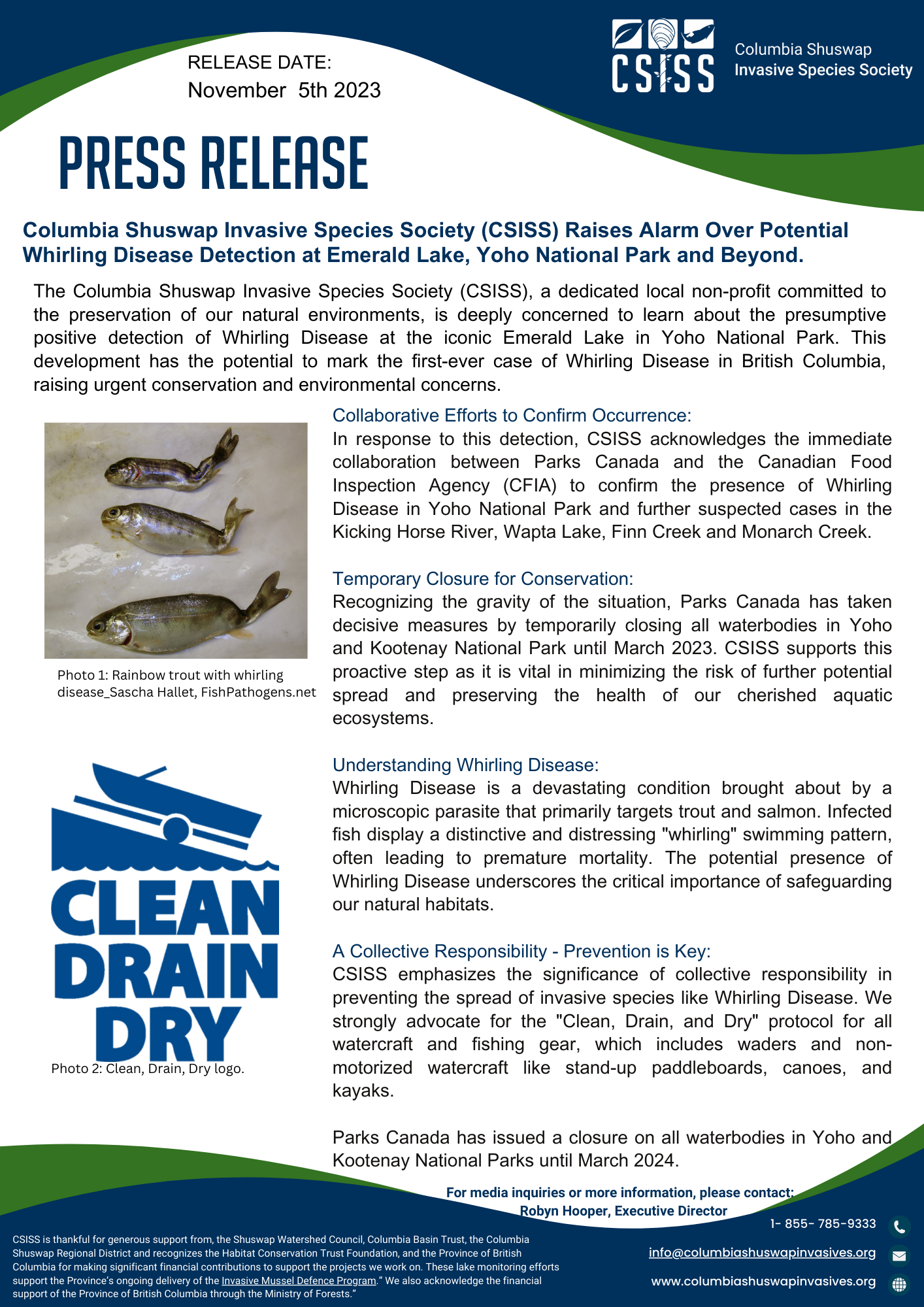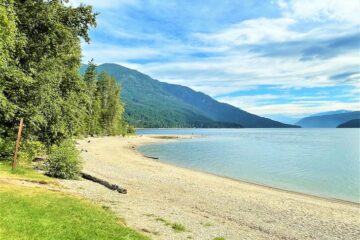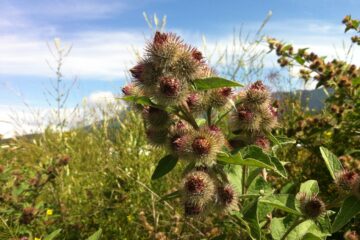Columbia Shuswap Invasive Species Society (CSISS) Raises Alarm Over Whirling Disease Detection at Emerald Lake, Yoho National Park

Photo caption: Rainbow trout infected with whirling disease which damages the backbone of the fish causing them to swim in a “whirling” pattern. Image: Sascha Hallet, FishPathogens
The Columbia Shuswap Invasive Species Society (CSISS), a dedicated local non-profit committed to the preservation of our natural environments, is deeply concerned to learn about the presumptive positive detection of Whirling Disease at the iconic Emerald Lake in Yoho National Park. This development has the potential to mark the first-ever case of Whirling Disease in British Columbia, raising urgent conservation and environmental concerns.
Collaborative Efforts to Confirm Occurrence:
In response to this alarming discovery, CSISS acknowledges the immediate collaboration between Parks Canada and the Canadian Food Inspection Agency (CFIA) to confirm the presence of Whirling Disease in Yoho National Park and further suspected cases in the Kicking Horse River, Wapta Lake, Finn Creek and Monarch Creek.
Temporary Closure for Conservation:
Recognizing the gravity of the situation, Parks Canada has taken decisive measures by temporarily closing all waterbodies in Yoho and Kootenay National Park until March 2024. CSISS supports this proactive step as it is vital in minimizing the risk of further potential spread and preserving the health of our cherished aquatic ecosystems.
Understanding Whirling Disease:
Whirling Disease is a devastating condition brought about by a microscopic parasite that primarily targets trout and salmon. Infected fish display a distinctive and distressing “whirling” swimming pattern, often leading to premature mortality. The potential presence of Whirling Disease underscores the critical importance of safeguarding our natural habitats.
A Collective Responsibility – Prevention is Key:
CSISS emphasizes the significance of collective responsibility in preventing the spread of invasive species like Whirling Disease. We strongly advocate for the “Clean, Drain, and Dry” protocol for all watercraft and fishing gear, which includes waders and non-motorized watercraft like stand-up paddleboards, canoes, and kayaks.
As a dedicated organization committed to invasive species management, CSISS remains steadfast in our mission to preserve the ecological integrity of our region. We are closely monitoring the situation at Emerald Lake and are ready to provide assistance and support as needed.
For more information:
Visit Parks Canada website to see area closures: https://parks.canada.ca/pn-np/bc/yoho/bulletins/AEE2C34C-E0B5-46D4-B7F8-F27921FE7E38
CFIA Website to learn more about whirling disease: https://inspection.canada.ca/animal-health/aquatic-animals/diseases/reportable-diseases/whirling-disease/eng/1336685663723/1336685826959
See CBC article: https://www.cbc.ca/news/canada/british-columbia/lakes-in-kootenay-and-yoho-national-parks-closed-after-suspected-whirling-disease-1.7011141
For any media Inquiries Contact CSISS Executive Director Robyn Hooper at: info@columbiashuwapinvasives.org
Members of the public are encouraged to report any suspected invasive species using the provincial “Report Invasives BC” smartphone application (available for download from www.gov.bc.ca/invasive-species) or, if invasive mussels are suspected, to call the Report All Poachers and Polluters hotline at 1-877-952-7277.
The Columbia Shuswap Invasive Species Society is a non-profit organization dedicated to the prevention, management and reduction of invasive species in the Columbia Shuswap Regional District. CSISS is thankful for generous support from, Shuswap Watershed Council, Columbia Basin Trust, the Columbia Shuswap Regional District and recognizes the Habitat Conservation Trust Foundation, and the Province of British Columbia for making significant financial contributions to support the projects we work on. These lake monitoring efforts support the Province’s ongoing delivery of the Invasive Mussel Defence Program.” We also acknowledge the financial support of the Province of British Columbia through the Ministry of Forests.”
To learn more about invasive species in the Columbia Shuswap region, please visit: http://www.columbiashuswapinvasives.org
###



